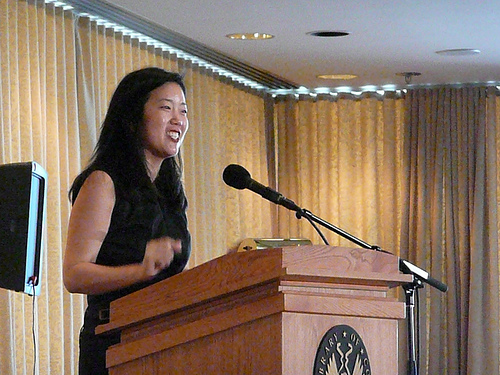 Brand-new test score results for the District of Columbia Public Schools show big gains. The Post reports:
Brand-new test score results for the District of Columbia Public Schools show big gains. The Post reports:
The biggest gains in the D.C. Comprehensive Assessment System exams were in the elementary grades, where almost half of the students tested were deemed proficient: 48.6 percent in math (up from 40.5 percent in 2008) and 49.4 percent in reading (up from 45.6 percent in 2008). In 2007, fewer than a third of elementary students were considered proficient in either category.
Those are promising trends though, as with all state tests, there's plenty of reason to wonder if the gains reflect real improvements in achievement, or just growing familiarity with the test. As Bill Turque of the Post writes in a huge understatement, "the District will learn more about where students stand relative to their peers in other cities this fall when it receives math test results from the National Assessment of Educational Progress." Indeed.
Rhee's response as reported by the Post was appropriate and somewhat measured: ""We're thrilled at the progress we've made this year,"??but "we still have an incredibly long way to go."
But I heard another clip on WAMU, the local NPR station, in which she claimed that if the current trends continue, "within six years we will have completely eliminated the achievement gap between black and white students in the District."
Now that's quite a statement. To the man on the street, it surely sounds miraculous. You mean black students in the District of Columbia, most of whom live in abject poverty in places like Anacostia, are going to be learning at the same level as the handful of white students in the system, most of whom come from affluent, well-educated families clustered on Capitol Hill and??the upscale neighborhood of??Chevy Chase, where houses start in the $750,000 range? Wow!
Except that's not what she means at all. She's referring to the proficiency gap--and by boosting the percentage of black students getting to "proficiency," she is automatically closing said gap because almost all of the white students are already over that bar. But that doesn't mean that the average black student will be achieving at the same level as the average white student, which is what "eliminating the achievement gap" sounds like. (She stole this trick from her mentor in New York City, Joel Klein.)
Now, if these gains for black students are real--and the NAEP results will be a good indicator--then they are still worth celebrating, big time. But the talk of "closing the achievement gap" is sloppy and misleading. Here's a suggestion: Let's stop talking about the achievement gap entirely, and instead focus on raising achievement across the board. It's more honest, and, in my view, more equitable, too.
